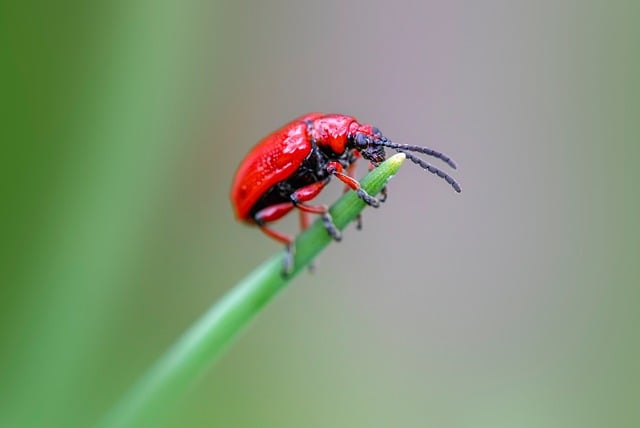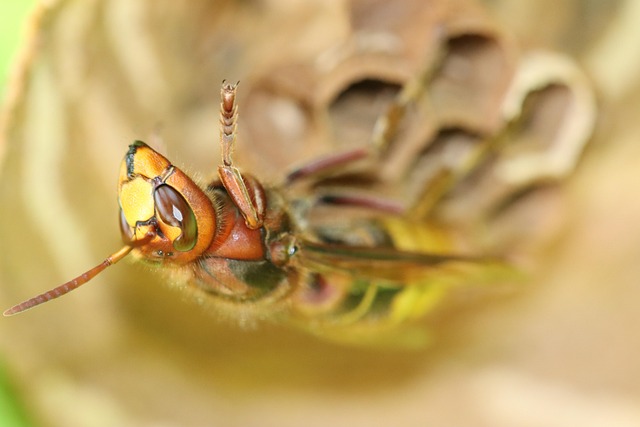Mosquitoes pose a significant threat to fruit trees in Arvada, Colorado, due to their role in transmitting diseases and pests. The local climate and water sources create ideal breeding conditions, leading to increased mosquito populations. To protect these valuable trees, the community needs proactive insect and disease management strategies. Implementing IPM-guided methods like habitat manipulation, biological control, and targeted treatments is crucial for creating a healthier environment and maintaining ecological balance. Regular monitoring, sustainable practices, and balanced interventions are key to long-term pest control, ensuring the longevity of fruit trees in Arvada.
In Arvada, where mosquito populations can threaten the health of valuable fruit trees, understanding and addressing these threats is crucial. This article explores comprehensive pest control strategies aimed at mosquito reduction, focusing on methods suitable for the local landscape. We delve into the unique challenges posed by mosquitoes to fruit trees, offering practical solutions for both short-term relief and long-term sustainable management. Discover how effective insect and disease management can ensure thriving fruit trees in Arvada.
- Understanding Mosquito-Related Threats to Fruit Trees in Arvada
- Implementing Effective Pest Control Strategies for Mosquito Reduction
- Long-Term Management and Monitoring for Sustainable Fruit Tree Health
Understanding Mosquito-Related Threats to Fruit Trees in Arvada

Mosquitoes pose a significant threat to fruit trees in Arvada, Colorado, both as vectors for diseases and pests. The area’s climate and proximity to water sources create ideal conditions for mosquito breeding, leading to increased populations during certain seasons. These insects can transmit various pathogens, such as viruses and fungi, that target fruit trees, causing reduced crop yields and even tree mortality if left unchecked.
Arvada’s vibrant fruit-growing community requires proactive insect and disease management strategies to protect valuable trees. Implementing mosquito reduction programs is crucial in minimizing the risk of pest-related damage. By employing integrated pest management techniques, including habitat manipulation, biological control, and targeted treatments, residents can create a healthier environment for their fruit trees and contribute to the overall well-being of the local ecosystem.
Implementing Effective Pest Control Strategies for Mosquito Reduction

Implementing effective pest control strategies is paramount for mosquito reduction, especially in areas like Arvada where fruit trees thrive. When it comes to insect and disease management for fruit trees near Arvada, a holistic approach that combines multiple techniques offers the best results. Integrated Pest Management (IPM) principles guide these strategies by promoting the use of non-chemical methods such as biological controls, habitat manipulation, and mechanical removal of mosquitoes’ breeding grounds.
For instance, introducing natural predators like dragonflies and bats can significantly curb mosquito populations. Additionally, removing standing water where mosquitoes breed—including buckets, clogged gutters, and unused containers—is a crucial step in preventing their proliferation. Regular maintenance and proper tree care practices not only enhance the health of fruit trees but also reduce areas where mosquitoes seek shelter and reproduce.
Long-Term Management and Monitoring for Sustainable Fruit Tree Health

In the long-term, effective pest control for fruit trees in Arvada requires a holistic approach that combines meticulous monitoring and sustainable management practices. By establishing a robust surveillance system, arborists can identify potential insect and disease issues early on. Regular inspections, particularly during critical growth stages, enable timely intervention before infestations escalate. This proactive strategy not only protects the health of individual trees but also maintains the overall ecological balance in Arvada’s urban landscape.
Sustainable insect and disease management involves utilizing integrated pest management (IPM) techniques that prioritize environmental friendliness and long-term tree vitality. These methods include cultural controls, such as proper sanitation and planting practices, biological controls like introducing beneficial insects or using plant-based repellents, and targeted applications of organic pesticides when necessary. By adopting these strategies, fruit tree owners in Arvada can contribute to a healthier urban environment while ensuring the longevity of their trees.
Mosquito control is a vital aspect of maintaining healthy fruit trees in Arvada, as these insects can pose significant threats. By implementing effective pest reduction programs and long-term monitoring strategies, residents and arborists can ensure the sustainability and prosperity of local fruit tree populations. Integrating these practices into insect and disease management plans will help create a harmonious balance between human communities and nature, fostering a healthier environment for both Arvada’s residents and its natural flora.
